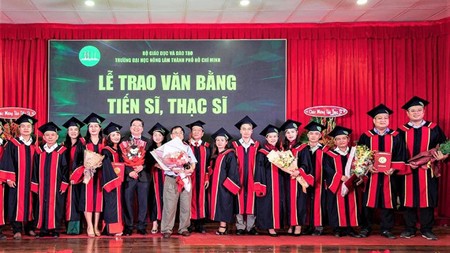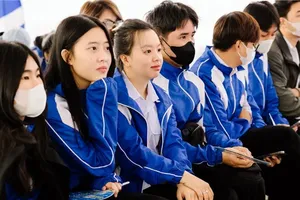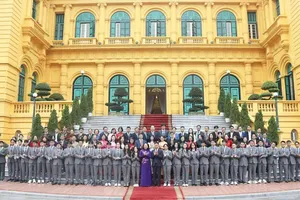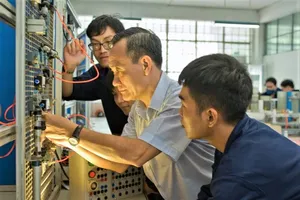
The Higher Education Department (under MoET) stated that the final draft of the new regulation on postgraduate education aims at adjusting outdated content regarding the admission process, the training of master’s and doctoral degrees, the documents related to the Vietnamese Qualifications Framework (VQF) and the structural framework of the national education system.
Different from the current regulation on postgraduate admission in Circular No.15/2014, which states that enrollment is done only via an entrance examination, the 2018 Law on Higher Education says that other methods like application review or even a combination of both are allowed.
Therefore, the final draft clearly displays the rules and thresholds for this process so that educational institutes can develop their own admission plans, along with accountability when needed.
The final draft also mentions criteria for the postgraduate output. That is all new masters must reach level 4 in the VQF, which is the input standard of doctorate training in Vietnam. What is more, the master training program must follow training standards for either research or application mode. The training time is based on the number of credits and must not be extended by more than 2 years compared with the designed one.
Associate Prof. Dr. Nguyen Thu Thuy – Director of the Higher Education Department – shared that this draft permits people from different fields from the chosen major to apply for a master’s degree. That means the training procedure should be more flexible, yet still maintain the output quality.
However, the 2018 Law on Higher Education does not allow training sessions to happen outside the main campus or official branches.
There are additional rules to improve training quality for such cases as one instructor approving uncontrollable research of a postgraduate student without specific quality control, and to ask training facilities to specify thesis details (including minimum and maximum length, citing methods in accordance with international standards, citing proportion, and the morality of students in their research process).
Ms. Nguyen Thi Bich Ngoc, Head of the Postgraduate Training Department of HCMC University of Law, commented that it is appropriate to allow more admission methods for master’s degree training. However, it is also necessary to introduce explicit criteria at least for the application review process for ease of implementation.
She added that the detail ‘Applicants for a master’s degree must have good grade in their bachelor’s degree training’ limits the chances of students wishing to further their educational level. This is unnecessary as training facilities should be allowed to decide the input quality on their own.
Dr. Hoang Ngoc Vinh, member of the Consultation Team under the National Committee on Education Reform during 2016-2021, said that the prestige and training quality should be the priority, not the input quality. Instead, state management units should introduce a quality framework to better monitor the training process as well as ensuring fairness for students.
Deputy Minister of Education and Training Nguyen Van Phuc insisted that the 2018 Law on Higher Education provides educational institutes with more autonomy, along with corresponding accountability. Therefore, quality-oriented adjustments of the circular related to the training process for master’s and doctoral degrees are essential.
























